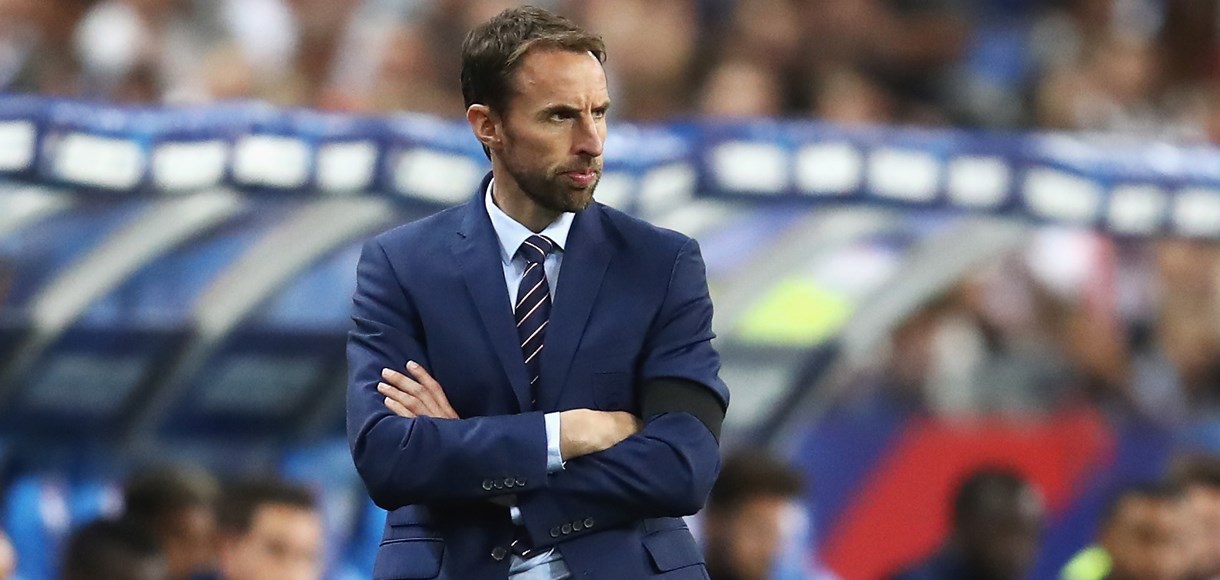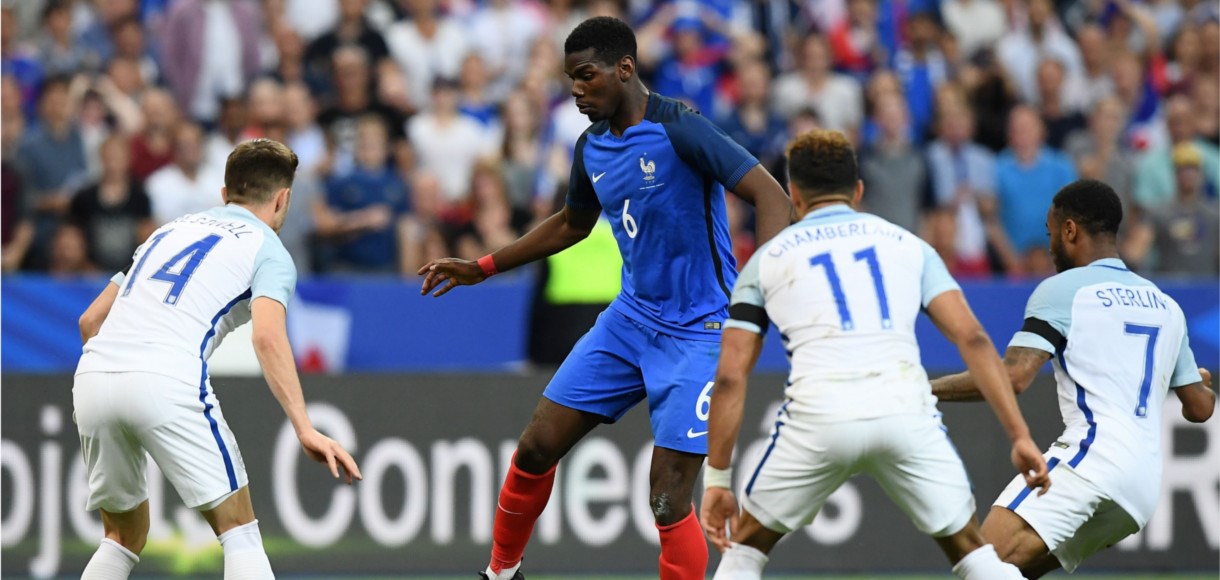One on One: Has Gareth Southgate’s major flaw been revealed?
Our writers debate how responsible the England manager was for two dismal displays against Scotland and France…

Tom Bowles believes Gareth Southgate underperformed in his role as England manager over the course of this international break. Tom Clee thinks he's overreacting.
Clee: Bowles, I know that some of what you saw against France really concerned you. Talk me through it.
Bowles: With pleasure. For the record, I like Southgate. He seems like a decent person and he definitely says the right things. But England's performances against Scotland and France were both really poor.
The players have been getting the stick, when really it was Southgate's poor team selection and tactics that were costly.
Before I go off on one, is that how you see things?
Clee: Don’t get me wrong, I’m not under any illusion that we’ve suddenly entered a bright new dawn.
That said, I do think there’s an important distinction to be made between competitive matches and friendlies.
He’s taken nine points from a possible 12 in qualifiers where the only goals we’ve conceded were those two late free kicks against Scotland.
Yes, you could question his selection of Joe Hart, but even Leigh Griffiths would admit he’d struggle to do that again if he tried.
When it comes to friendlies, I think Southgate is forward-thinking enough to put his own personal record to one side and instead treat them as what they are: a chance to play new faces and try different things that might end up having some long-term benefit.
We should have beaten Spain, looked decent against Germany and narrowly lost an entertaining end-of-season exhibition against France. That’s not bad going.
Bowles: I had no qualms with the selection of Hart. I don't think he'll be England's No. 1 at next year's World Cup, but away at Scotland wasn't the time to throw in one of the new lads.
What baffled me was his decision to play two defensive midfielders, Eric Dier and Jake Livermore. It was completely unnecessary against a team that were always going to put 10 men behind the ball.
Neither Dier nor Livermore is an incisive passer, which is what you need in those games. Southgate’s failure to address the problem with his substitutions was just as poor.
Then, against France, when two ball winners would have been ideal against Paul Pogba and N’Golo Kante, he plumped for Dier and an out-of-position Alex Oxlade-Chamberlain. That was crazy.
Oxlade-Chamberlain is not a central midfielder – his woeful display against Lithuania a couple of months ago was evidence of that.
I actually felt a bit sorry for him, to be honest. He’s been in decent form as a winger/wing-back and should have been deployed there.
But that selection was nothing compared to Southgate’s subs. Once again, he failed to recognise what was happening and make the appropriate changes.
When France went down to 10 men, he should have put on Adam Lallana in central midfield. That’s where he plays for Liverpool, and he would have given England a better chance of controlling the tempo of the match.
The changes he made in the end made no sense. At one point, there was Kyle Walker at left-back, Phil Jones at right-back, Chamberlain in midfield and Lallana on the right-wing. It was a mess.
Friendly or not, what was the long-term benefit of playing players out of position and being tactically outdone by a team with less men?

Clee: All valid points, and tough ones to dispute.
But I think we can both agree that Southgate is intelligent enough not to have just made those decisions on a whim, even if the thinking behind them is open to question.
Dier’s form tailed off towards the end of the season, while Livermore had just one cap to his name before the Scotland game.
So it’s not outrageous to play both – particularly at Hampden Park where, like you say, the atmosphere was always going to be unforgiving.
Besides, fielding Lallana, Dele Alli, Marcus Rashford and Harry Kane from the start is hardly conservative.
Oxlade-Chamberlain provided some much-needed impetus when he came on and even got the first goal, so there’s an argument to say he’d earned a start.
Granted, he’s done well out wide of late, but I don’t think that mini-experiment is enough to finally solve the interminable conundrum as to what is his best position.
At least now Southgate should have learned, beyond any doubt, that the Ox is not cut out to be a central midfielder at international level.
As for the mix-and-match mayhem at the end, there was clearly an element of managing the workload of players who have seen their season extend well into June and giving some game time to those on the periphery.
Bowles: I’m not accusing Southgate of being conservative, negative or any other broad philosophy that people like to dub managers these days.
I’m saying he failed to pick a team that would best exploit the weaknesses of the opposition - that is literally what his job is.
It’s all well and good having attacking players on the pitch, but if you haven’t got anyone who’s capable of getting the ball to them early, it’s pointless.
It might seem like an overreaction to a fairly innocuous pair of results, and I’m surprised myself at how strongly I felt during – and following – the game.
I guess I’m disappointed because Southgate the manager, on the evidence of the last two games at least, isn’t anywhere near as perceptive as Southgate the public speaker.
That takes me nicely onto my final point: he talks about the team needing to be flexible – hence his alternating between four and three at the back – which is not an unreasonable thing to say.
In reality, though, it would be better if England played one formation well, rather than two inconspicuously.
Southgate only has about a dozen games a season with these players, remember. There's no reason not to take each one seriously.
Neither he – nor the players – are good enough to pass any of them off as experiments.




































